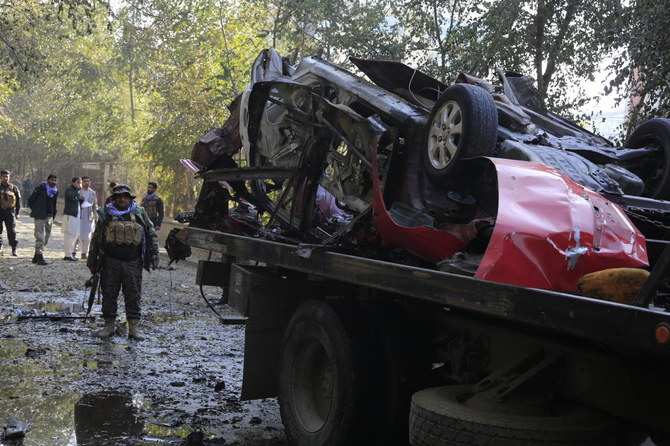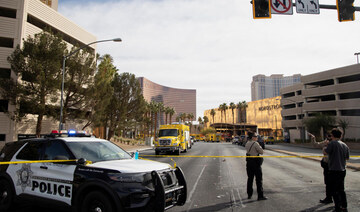KABUL: A former journalist died in a blast targeting his vehicle in a residential area of Kabul a few miles away from the presidential palace on Saturday, the latest victim in a string of attacks on the capital city, officials said.
Yama Siawash, who began working as a civil servant recently, “was in his car in a residential area of the city when the sticky bomb, attached to the vehicle, went off, killing him and his driver,” Ferdaws Faramarz, a spokesman for Kabul police, told reporters.
The magnet bomb used in the strike is among several weapons deployed by assailants in a surge of sophisticated strikes in Kabul and other parts of Afghanistan in the past few months.
There was no immediate claim of responsibility for the killing, unlike other attacks targeting politicians, government officials and civil activists in Kabul.
“The targeted killing of civilians goes on, taking precious lives, creating fear and anxiety,” Sharzad Akbar, head of Afghanistan’s Independent Commission of Human Rights, said in a statement on Saturday after Siawash’s death.
“Government must do better to prevent (the attacks). The Taliban often reject involvement in these killings, that is insufficient. They must publicly denounce all targeted killings of civilians, with no exception,” he added.
Meanwhile, President Ashraf Ghani’s chief spokesman, Sediq Seddiqi, called the killing a “terroristic attack” without holding anyone responsible for it.
“We condemn the terroristic attack against Yama Siawash. Siawash had very lately begun his work as an official in the Central Bank and was martyred as a result of a mine which struck his car today,” he tweeted on Saturday.
Siawash was in his early thirties and had previously worked as a journalist and a TV presenter for a private news channel, challenging officials and strongmen in his debates during a special program that had become hugely popular among the masses in Afghanistan.
His former colleagues described him as one of the country’s “most vibrant and talented” young journalists.
“Another star of our young generation, a highly motivated and active journalist, lost his life today in a blast. He was very dedicated, motivated and a talented person,” Rafiq Atash, a local journalist and Siawash’s acquaintance, told Arab News.
His death and an increase in targeted killings prompted the parliament on Saturday to summon first Vice President Amrullah Saleh, Ghani’s national security adviser, the head of intelligence and ministers for interior and defense, over their failure to curb violence in the country, reports said.
It follows another attack on Nov. 2, in which gunmen stormed Kabul University campus, triggering hours of gunbattle with local and US troops, and resulting in the deaths of 22 civilians.
In a similar incident more than two weeks ago, in a Shia-dominated part of Kabul, a suicide bomber attacked an educational center, killing nearly 30 students.
Daesh claimed responsibility for both attacks even as Ghani’s government blamed the Taliban for them.
The government has for a long time hinted that increasing attacks by the Taliban may prompt Kabul to call off the peace talks between negotiators from both sides in Doha, Qatar.
The intra-Afghan talks, which began on Sept. 12, were brokered by Washington as part of a historic agreement signed in February this year for a political settlement to end decades of war in the country.
In a win for the government, Army Chief Gen. Mohammad Yasin Zia said on Friday that the Afghan National Defense and Security Forces (ANDSF) had retaken a crucial district in the southern Kandahar province from the Taliban, with at least 200 insurgents “killed in an operation against the group” in the Arghandab district.
Fawad Aman, a spokesman for the defense ministry, told Arab News that the militants were killed “in-ground and aerial attacks of the local forces in response to their raids on government forces in Kandahar.”
“They were killed in a reciprocal attack of our forces. We are in defensive mode, and the enemy had staged a series of provocations, and we merely responded,” Aman said.
However, a Taliban spokesman rejected the claims on Saturday. “It is all propaganda of the Kabul regime; they are lying,” Zabihullah Mujahid told Arab News.
Some experts blamed Ghani’s administration for the surge in strikes.
“The government is under fire by the parliament and the public for its inability to prevent the attacks in Kabul and other parts of Afghanistan while its leaders drive around in armored vehicles, accompanied by scores of bodyguards,” Shafiq Haqpal, an analyst, told Arab News.





























